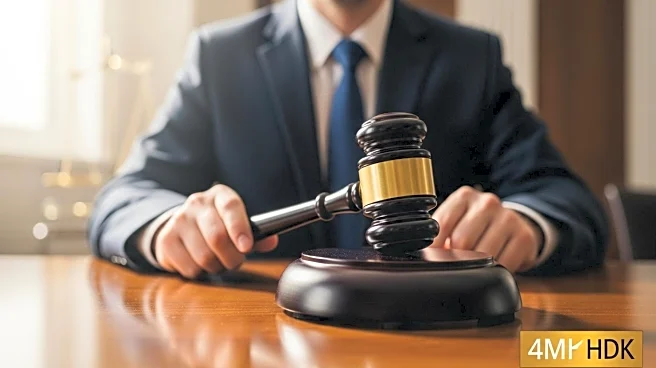What's Happening?
Alex Jones has asked the Supreme Court to pause a $1.5 billion defamation judgment against him. This judgment was imposed due to his false claims that the Sandy Hook school shooting was a hoax. Jones argues that the judgment threatens his media company, Infowars, which is at risk of being sold to The Onion to fund payments to the victims' families. He claims that the sale would destroy his platform and deprive his audience of information.
Why It's Important?
The case is significant as it tests the boundaries of free speech and the consequences of spreading false information. The judgment against Jones is one of the largest defamation awards in history, highlighting the potential financial repercussions for media figures who propagate conspiracy theories. The Supreme Court's decision could influence future defamation cases and the legal responsibilities of media personalities.
What's Next?
The Supreme Court is scheduled to discuss Jones' appeal in private. If the court decides to review the case, it could lead to changes in the judgment and affect the future of Infowars. The decision will be closely watched by media companies and legal experts, as it may set a precedent for handling defamation claims involving conspiracy theories.
Beyond the Headlines
Jones' appeal raises questions about the ethical responsibilities of media figures in reporting information. The potential acquisition of Infowars by The Onion adds a layer of complexity to the case, reflecting the challenges of balancing free speech with accountability. The case also underscores the impact of conspiracy theories on public discourse and policy.









